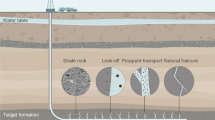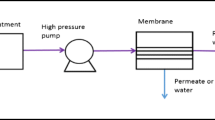Abstract
The inexhaustible heat deposit in great depths (5–10 km) is a scientific fact. Such deposit occurs around the globe. Thereby, everybody is enabled to generate autonomously clean and renewable energy, ample electricity and heat. The economical exploration and exploitation of this superdeep geothermal heat deposit requires a novel drilling technique, because the currently only deep drilling method (Rotary) is limited to about 5 km, due to the rising costs, depending exponentially on depth. Electro-pulse-boring (EPB) is a valuable option to Rotary drilling. EPB, originally investigated in Russia, is ready to be developed for industrialization. The feasibility of EPB is proven by many boreholes drilled up to 200 m in granite (crystalline). Estimates show outstanding low costs for drilling by EPB: 100 zs/m for a borehole with a large diameter (Ø) such as 20″ (50 cm), independent on depth and applicable likewise for sediments and crystalline rocks, such as granite. The current rate of penetration (ROP) of 3 m per hour is planned to be augmented up to 35 m per hour, and again, irrespective whether in sedimentary or crystalline formations. Consequently, a 10 km deep borehole with Ø 50 cm will ultimately be drilled within 12 days. EPB will create new markets, such as: (i) EPB shallow drilling for geotechnics, energy piles, measures in order to mitigate natural hazards, etc., (ii) EPB deep drilling (3–5 km) for hydro-geothermics, exploration campaigns etc. and (iii) EPB super-deep drilling (5–10 km) for petro-geothermics, enabling the economic generation of electricity. The autonomous and unlimited supply with cost efficient electricity, besides ample heat, ensures reliably clean and renewable energy, thus, high supply security. Such development will provide a substantial relief to cope with the global challenge to limit the climate change below 2 °C. The diminution of fossil fuels, due to the energy transition in order to mitigate the climate change, implies likewise the decrease of air pollution.
Similar content being viewed by others
References Cited
Aegerter, I., Berg, M., Burger, P., et al., 2012. Zukunft Stromversorgung Schweiz, Kurzfassung. Akademien der Wissenschaften Schweiz, Bern. ISBN: 978-3-907630-31-4
Bommer, C., Waldvogel, N., Hardegger, P., 2012. Photonics for Deep Geothermal Energy Harvesting. Proceedings Swissphotonics Workshop, November 7, 2012, Neuchâtel. http://www.ibu.hsr.ch/fileadmin/user_upload/ibu.hsr.ch/ibu/Geotechnik/proceedings_.pdf
BFE (Bundesamt für Energie), 2012. Energieverbrauch der Schweiz im Jahr. Bestellnummer: 805.006.12, Juni 2013; www.bundespublikationen.admin.ch
Häring, M. O., 2007. Geothermische Stromproduktion aus Enhanced Geothermal Systems (EGS): Stand der Technik. Geothermal Explorers Ltd., CH-4133 Prattein
IEA (International Energy Agency), 2014. World Energy Investment Outlook—Special Report. http://www.iea.org/publications/freepublications/publication/WEIO2014.pdf
Moore, J. N., Simmons, S. F., 2013. More Power from Below. Science, 340(6135): 933–934
Rodland, A., 2012. The EPB Story. In: Photonics for Deep Geothermal Energy Harvesting, Proceedings Swissphotonics Workshop. November 7, 2012, Neuchâtel
Schiegg, H. O., 2011. Projekt “SGP-Petro-Geothermie”. GEOWATT AG, Zürich
Schiegg, H. O., Heller, D., Schmidt, B., 2013. Weissbuch zur Energiewende. IBU/HSR, Rapperswil
Stocker, T. F., Qin, D. H., Plattner, G. K., et al., 2013. Climate Change 2013: The Phisical Science Basis. WMO & UNEP. ISBN: 978-92-9169-138-8
Tester, J. W., Anderson, B. J., Batchelor, A. S., et al., 2006. The Future of Geothermal Energy: Impact of Enhanced Systems (EGS) on the United States in the 21st Century. Gwen Wilcox, MIT. http://geothermal.inel.gov/publications/future_of_geothermal-energy.pdf.
Author information
Authors and Affiliations
Corresponding author
Rights and permissions
About this article
Cite this article
Schiegg, H.O., Rødland, A., Zhu, G. et al. Electro-pulse-boring (EPB): Novel super-deep drilling technology for low cost electricity. J. Earth Sci. 26, 37–46 (2015). https://doi.org/10.1007/s12583-015-0519-x
Received:
Accepted:
Published:
Issue Date:
DOI: https://doi.org/10.1007/s12583-015-0519-x




